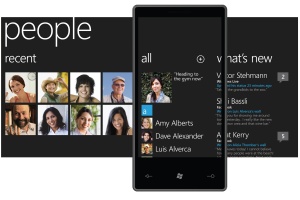AT&T Mobility CEO Ralph de la Vega recently took the time to do an interview with All Things Digital. While he answered various questions about the mobile industry, his comments in regards to Microsoft's Windows Phone are particularly interesting.
On the one hand, de la Vega admits that Windows Phone 7 sales have been underwhelming, for both Microsoft and AT&T. On the other hand, he still believes the platform stands a chance, and he underlines that it is technically version 1.0 (one must remember that Windows Phone is a complete reboot of Windows Mobile).
Nokia has made this huge bet on Windows Phone. One of the reasons, they have said, is to have a bigger presence then they have had in many years in North America. How interested are you in adding them to your lineup?
De la Vega: We already have Windows Phone 7 in our lineup. We actually like that software very, very much. It hasn't sold as well as Microsoft or we would want it to, but I think having the Nokia hardware capability with the Microsoft software capability is a really good combination. They have to prove it by bringing some great devices to market. But I would love to have a great Nokia device with Microsoft Windows Phone 7.
Windows Phone 7, is it a hard sell, or are their features that are missing?
De la Vega: Keep in mind this is the first product that Microsoft has come out with since Microsoft redid their OS. I think for the first thing out of the chute it is pretty good. I think they just need to make it better. If you listen to what Steve Ballmer is saying (Mango, the next version), is going to add about 500 features. I think they are going to make it a lot better. Giving customers more application choices, having a bigger app store with more functionality on the phone, I think that is all that it needs.
Four months ago, Nokia announced that it was choosing Microsoft's Windows Phone as its primary smartphone platform. Two months ago, Nokia and Microsoft finally signed a definitive agreement regarding their global mobile ecosystem partnership.
Many still think that Nokia should have gone with Android instead, given that Google's mobile operating system is really dominating in market share nowadays. Time will soon tell if the Finnish company made the right decision in hoping the mobile industry has room for Windows Phone succeeding in the long run. Right now, third place is still up for grabs.
Last month, Microsoft announced and previewed Windows Phone 7.1 (codenamed Mango), which the company says will include over 500 new features, as well as a Web-based Windows Phone Marketplace. The Mango release, which we think should be called Windows Phone 8, will be available for free to Windows Phone 7 customers and is scheduled to ship on new phones beginning this fall. Device update timing is still unknown.
